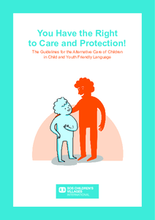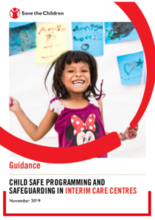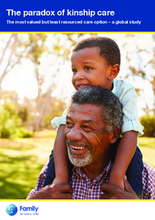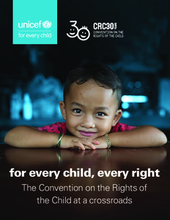Displaying 1751 - 1760 of 4400
Marking the 10th anniversary of the adoption of Guidelines for the Alternative Care of Children, this booklet from SOS Children's Villages International informs children and young people about their right to live in a supportive family environment in accordance with the Guidelines.
Marking the 10th anniversary of the adoption of Guidelines for the Alternative Care of Children, this booklet from SOS Children's Villages International informs children and young people about their right to live in a supportive family environment in accordance with the Guidelines.
The aim of this study was to systematically review studies where the physical health consequences for children left behind (CLB) were analysed.
This conceptual chapter from the book Education in Out-of-Home Care argues that efforts to improve educational outcomes for care experienced young people need rethinking.
This book draws together for the first time some of the most important international policy practice and research relating to education in out-of-home care.
A World Without Orphans original animation. Find out more at: www.worldwithoutorphans.org
In this article for Forbes, Christine Ro describes how "orphanages are the main cause of the unnecessary separation of children from their families" and discusses the recent launch of Lumos' #HelpingNotHelping campaign which calls for an end to orphanage volunteering.
This document outlines some of the potential risks children face in Interim Care Centres and suggests how to manage them to ensure that children are as safe as possible.
This report from Family for Every Child examines the growing use of kinship care, including its value and support needs for safe and effective use. The report argues that there is an urgent need to increase support to children living with relatives or friends of their family, with key recommendations made for national governments, donors and UN agencies.
Published in connection with the 30th anniversary of the Convention, this report is intended as an advocacy tool to both celebrate the achievements of the past three decades and generate dialogue on the critical work that remains – especially for children who have been left behind.





